Street French or Higher level French - which are you speaking?
Dec 17, 2024
Soutenu vs familier ?
Do you say “Quoi/What?” or “Pardon”
Do you say “TOP !” or “Merveilleux !”
The words we choose in French, if we are understood might not matter at first . . . then we start wanting to sound a little less ‘street’ and edging towards a more formal way of speaking.
In this mini-lesson I share with you:
- What ‘soutenu’ language is
- How easy it is to use
- Some great examples for you to work out

What does langue soutenue mean?
I am sure you don’t talk to your parents and friends like you do with your boss or the president of your country! Indeed, you should adapt the way to communicate. This is why you can opt for the informal register ( informel or familier in French) or for the formal one (soutenu in French).
What does soutenu mean? It refers to a formal or elevated style of language that is used in more serious, academic, or literary contexts.
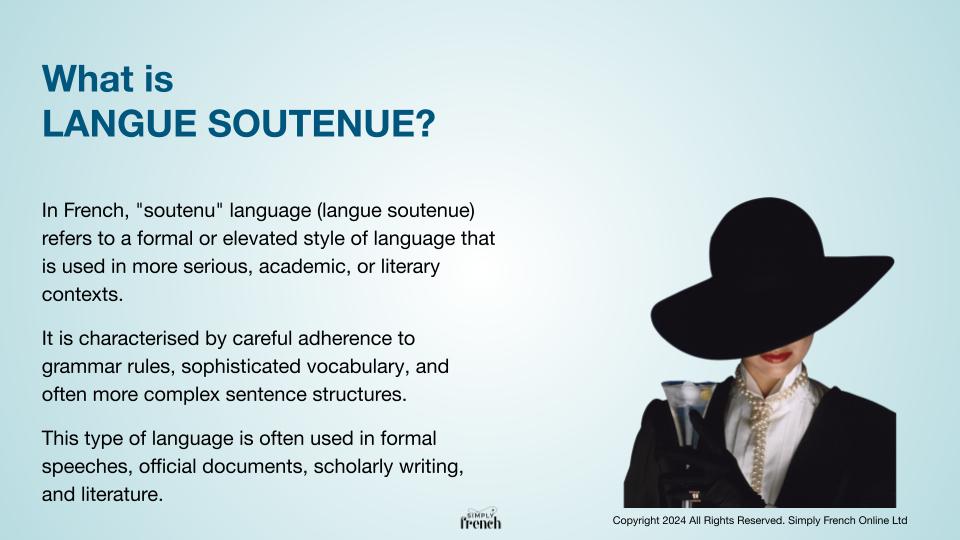
Sure, when you start learning a language, people don’t mind if you make mistakes but still, it’s essential to know the differences between the two registers.
Let me show you an example.
Here are two ways to express the same thing but the register and context vary.
- (informal) Salut ! Comment ça va ? >>> HI! How are you?
- (soutenu) Bonjour ! Comment vous sentez-vous aujourd'hui ? >>> Good morning! How are feeling today?

Here’s another example for you:
- (informal) Je t’écris pour te dire que… >>> I’m writing to tell you that…
- (soutenu) Je vous écris afin de vous informer que… >>> I’m writing to inform you that…
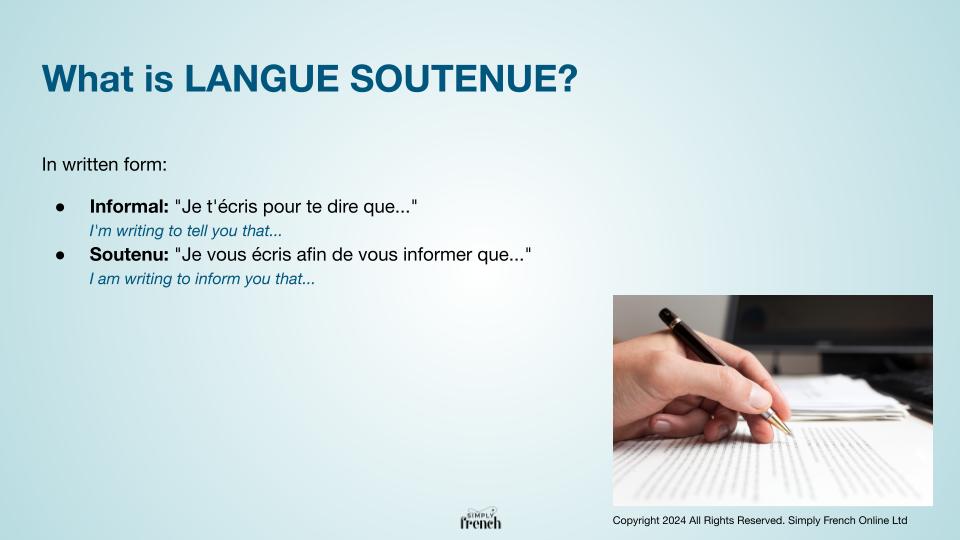
In the next section, you will see more illustrations.
9 essential examples to express informal and formal French.
You are about to see real expressions that French people use every day:
- (informal) Salut ! >>> Hi!
- (soutenu) Bonjour. >>> Good morning / afternoon.
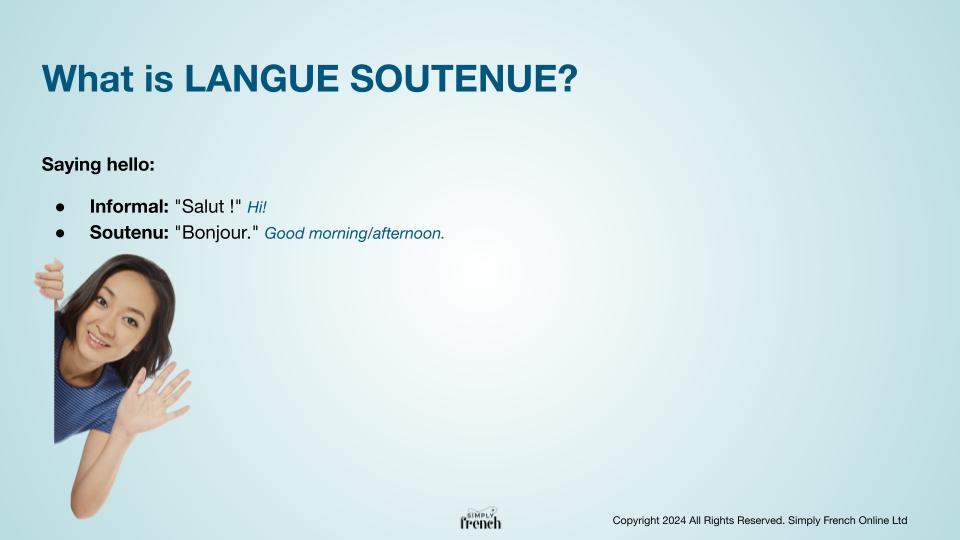
- (informal) Merci >>> Thank you.
- (soutenu) Je vous remercie >>> I think you.

- (informal) Désolé >>> Sorry
- (soutenu) Je vous présente mes excuses >>> I offer you my apologies.
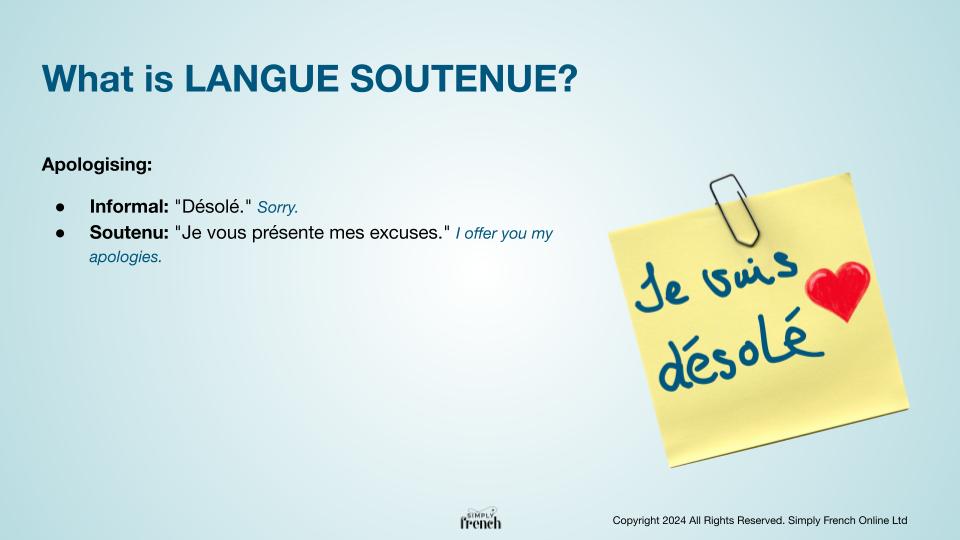
- (informal) Tu peux me prêter ton stylo ? >>> Can you lend me your pen?
- (soutenu) Pourriez-vous me prêter votre stylo, s’il vous plaît ? >>> Could you lend me your pen, please?

- (informal) Tu peux m’aider ? >>> Can you help me?
- (soutenu) Pourriez-vous m’aider, s’il vous plaît ? >>> I think you.

- (informal) C’est sympa ! >>> That’s nice!
- (soutenu) C’est très aimable de votre part >>> That’s very kind of you.

- (informal) Salut, à plus ! >>> Bye, see you later!
- (soutenu) Au revoir, à bientôt. >>> Goodbye, see you soon.

- (informal) D’accord. >>> Okay.
- (soutenu) Je suis d’accord. >>> I agree.
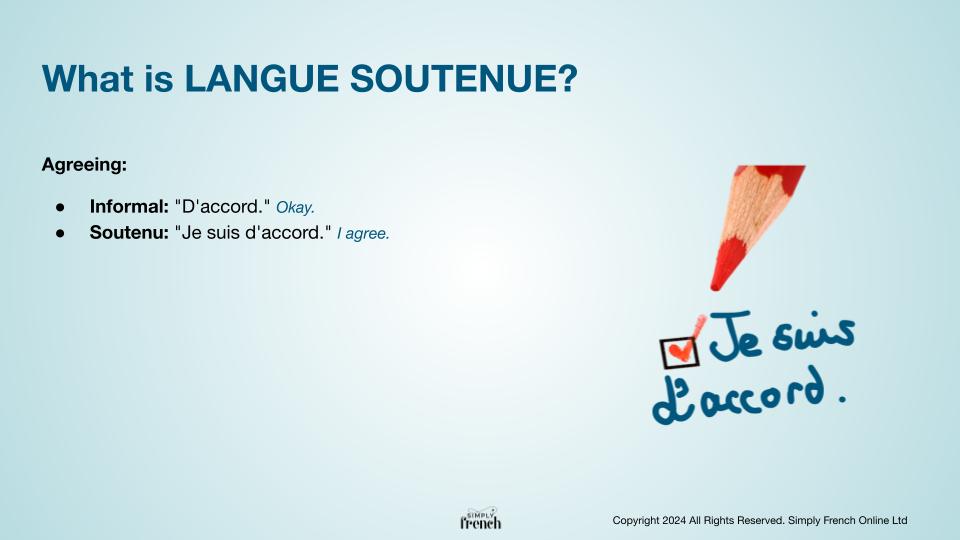
- (informal) C’est pas vrai ! >>> No way!
- (soutenu) Est-ce possible ? >>> Is it possible?

Street French or Higher level French - which are you speaking?
As you can see, even if you mean the same idea, the choice of your words is completely different. You don’t want to be rude. That is why if you master the context with the right register, your conversation will flow.
Always be ready with a notebook to write down the expressions you hear or see and check if it is formal or informal. Then, play with it!
I have these mini-lessons that will take your French to the next level:
How to use the expression AVOIR BEAU
Free Masterclass
Learn my 4 step method of how to hold meaningful french conversations the R.E.A.L. way in just 30 minutes a day.
When you signup, we'll be sending you weekly emails with additional free content

